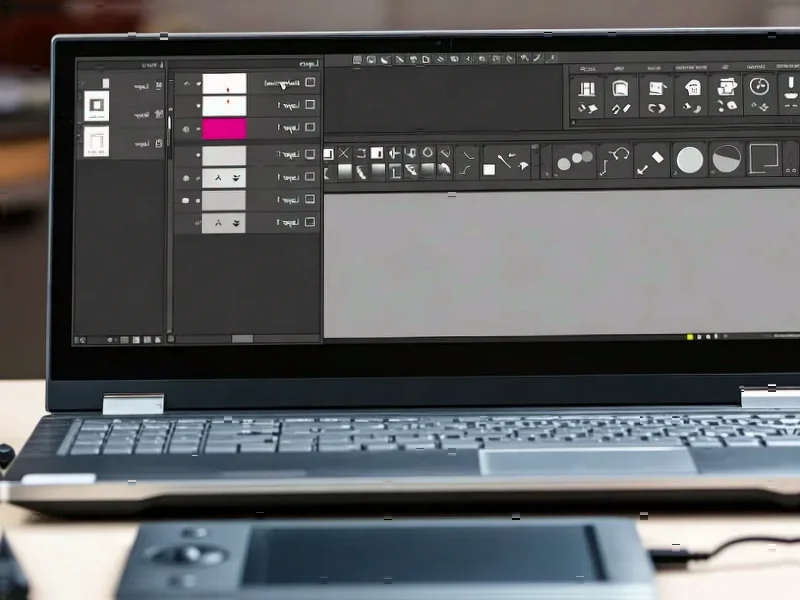According to Semiconductor Today, NUBURU Inc has completed the first phase of its acquisition of Orbit S.r.l., an Italian defense-grade Software-as-a-Service company specializing in operational resilience and crisis management. Through subsidiary Nuburu Defense LLC, the company made an initial $1.5 million capital infusion securing a 10.7% equity position, with a planned additional $3.5 million investment to achieve majority ownership. The total acquisition value is $12.5 million, including equity securities to be settled by 2026, with Orbit previously wholly owned by NUBURU executive chairman Alessandro Zamboni. The deal targets a $2.9-3.6 billion operational resilience market growing over 10% annually and supports NUBURU’s transformation into a diversified defense-resilience technology company. This strategic move represents a fundamental shift for the Colorado-based laser manufacturer.
From Hardware Manufacturer to Defense Platform
NUBURU’s acquisition marks one of the most significant strategic pivots in recent defense technology history. Founded in 2015 as a high-power industrial blue laser manufacturer, the company is now positioning itself as an integrated defense technology provider. This transition from pure hardware to software-enabled platforms reflects a broader industry trend where physical systems increasingly derive their value from the software that controls them. The move into operational resilience software represents a calculated bet that recurring SaaS revenue will provide more stable financial footing than the cyclical capital equipment business of industrial lasers.
Winners and Losers in the Defense Tech Shift
For defense contractors and government agencies, this consolidation creates both opportunities and challenges. The integration of Orbit’s command-and-control software with NUBURU’s drone joint venture promises more responsive threat detection systems, potentially reducing response times in critical situations. However, smaller specialized software firms may find themselves squeezed out as larger players like NUBURU build comprehensive platforms. Defense procurement officers face both simplified vendor management through integrated solutions and potential vendor lock-in risks. The real beneficiaries could be frontline operators who gain more seamless intelligence-to-action workflows, though this depends heavily on successful integration execution.
The $3B Operational Resilience Gold Rush
The projected $2.9-3.6 billion market for operational resilience technologies represents a rapidly expanding frontier in defense spending. As geopolitical tensions increase and critical infrastructure faces growing cyber and physical threats, governments worldwide are prioritizing continuity planning. NUBURU’s timing appears strategic, entering this market as defense budgets globally shift toward digital transformation and resilience capabilities. However, the 10% annual growth rate, while attractive, also means intense competition from both established defense giants and agile software startups. NUBURU’s differentiation will need to come from the unique integration of its hardware expertise with Orbit’s software capabilities.
The Hard Road From Acquisition to Integration
The phased acquisition approach, while financially prudent, introduces significant execution risks. Cultural integration between a Colorado-based laser manufacturer and an Italian software firm presents substantial challenges beyond the typical corporate merger. Defense software requires different development cycles, security protocols, and customer engagement models than industrial hardware. The success of this transformation hinges on NUBURU’s ability to manage these cultural and operational differences while maintaining the trust of defense customers who demand absolute reliability. The company’s ambitious revenue targets—$100 million for the drone joint venture and nearly $20 million for NUBURU itself—will test whether this hardware-software fusion can deliver real battlefield value.
European Defense Tech in American Hands
The acquisition of an Italian defense software company by a U.S. firm reflects broader trends in transatlantic defense technology consolidation. As European nations increase defense spending in response to regional security concerns, American companies are positioning to capture this growth. However, this cross-border acquisition may face regulatory scrutiny given the sensitive nature of defense software and increasing European emphasis on technological sovereignty. The success of this deal could signal whether similar transatlantic defense tech mergers will become more common or face heightened regulatory barriers.




